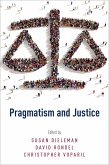In all groups -- from couples to nation-states -- people influence one another. Much of this influence is benign, for example giving advice to friends or serving as role models for our children and students. Some forms of influence, however, are clearly morally suspect, such as threats of violence and blackmail. A great deal of attention has been paid to one form of morally suspect influence, namely coercion. Less attention has been paid to what might be a more pervasive form of influence: manipulation. The essays in this volume address this relative imbalance by focusing on manipulation, examining its nature, moral status, and its significance in personal and social life. They address a number of central questions: What counts as manipulation? How is it distinguished from coercion and ordinary rational persuasion? Is it always wrong, or can it sometimes be justified, and if so, when? Is manipulative influence more benign than coercion? Can one manipulate unintentionally? How does being manipulated to act bear on one's moral responsibly for so acting? Given various answers to these questions, what should we think of practices such as advertising and seduction?
Dieser Download kann aus rechtlichen Gründen nur mit Rechnungsadresse in A, B, BG, CY, CZ, D, DK, EW, E, FIN, F, GR, HR, H, IRL, I, LT, L, LR, M, NL, PL, P, R, S, SLO, SK ausgeliefert werden.









